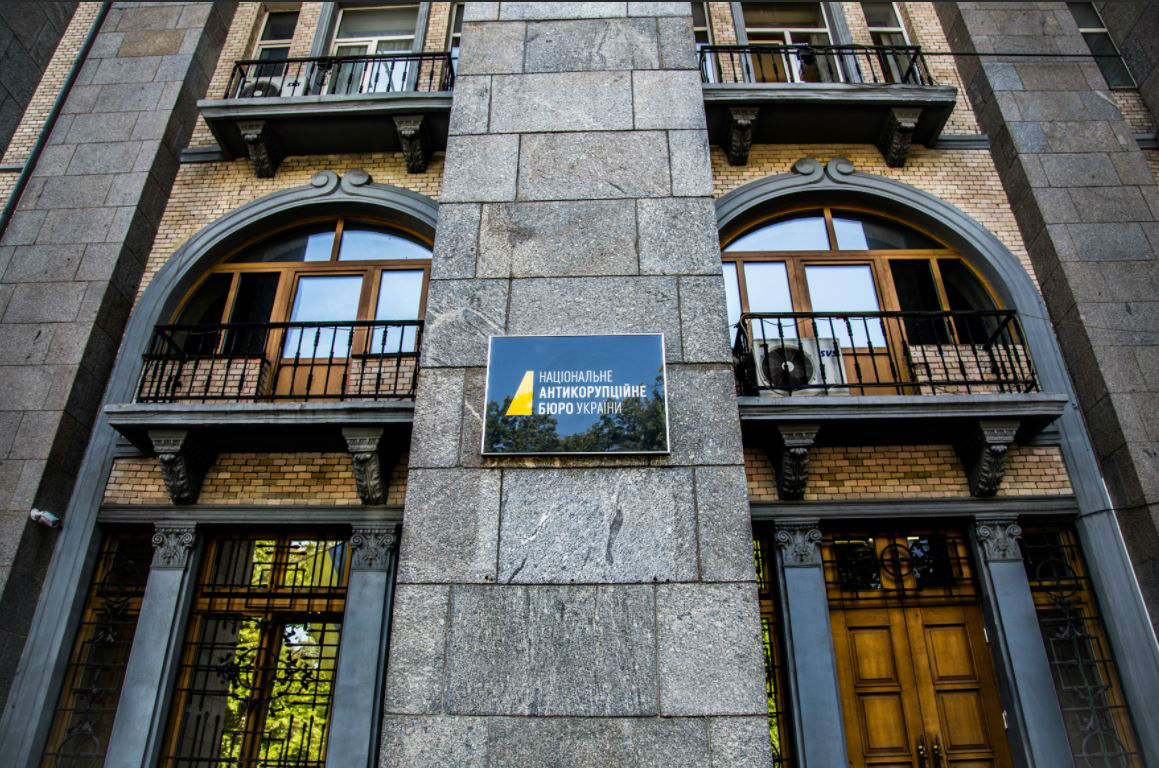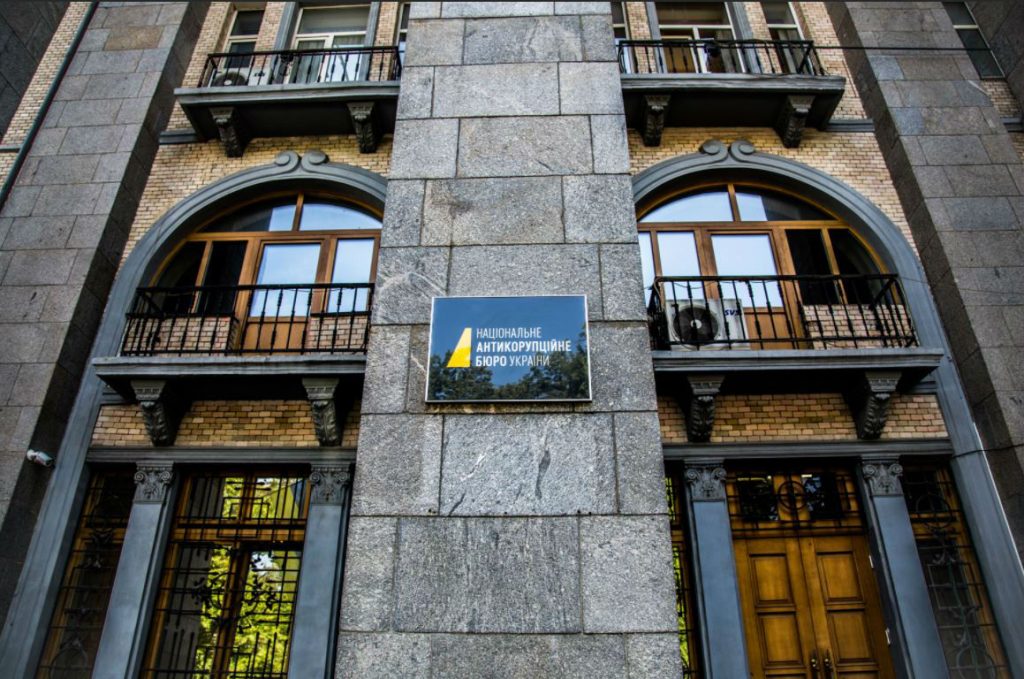 The masks have been torn off. Law enforcement officers and lawmakers have launched a frontal attack on the National Anticorruption Bureau of Ukraine (NABU) for the first time.
The masks have been torn off. Law enforcement officers and lawmakers have launched a frontal attack on the National Anticorruption Bureau of Ukraine (NABU) for the first time.
On December 6, pro-government faction leaders Artur Gerasimov and Maxim Burbak registered a bill to remove the head of NABU, Artem Sytnyk. Wow, consider this: the bill’s architects are the leaders of the two major political factions in parliament.
In the last three years, the power struggle against anticorruption crusaders has never been so open. A week earlier, Ukraine’s Prosecutor General Yuriy Lutsenko unveiled his true face when he openly and emotionally joined the fight against NABU and personally against Sytnyk. Ukraine’s Security Service (SBU), for that matter, has long been pursuing this course. But when it detained seven NABU agents who were trying to uncover another corrupt scheme involving high-ranking officials, it only reaffirmed that its main fight is against anticorruption institutions.
The pretext for attacking NABU is a minor technicality—the alleged use of “smuggled” work equipment. They’ve been clearly looking hard for a pretext but couldn’t find it. In a similar fashion, they were looking for a pretext against two former Deputy Prosecutors Generals Vitaliy Kasko and Davit Sakvarelidze, who also for the first time in history had attempted to clean up the leadership of the prosecutor general’s office. Back then, as it turned out, Kasko and Sakvarelidze violated some procedures. This prevented the corrupt prosecutor from being punished, while getting Kasko and Sakvarelidze into a lot of trouble, which haunts them to this day.
Despite the public support of the United States and the European Union for the anticorruption bodies, Ukraine’s heads of law enforcement agencies and the largest parliamentary factions decided to reinforce their battle against NABU. In fact, US Secretary of State Rex W. Tillerson, made an open statement: “It serves no purpose for Ukraine to fight for its body in Donbas if it loses its soul to corruption,” adding that “anticorruption institutions must be supported, resourced, and defended.”
The EU also said in a statement that the work of Ukraine’s anticorruption institutions “must not be undermined but reinforced.” And if that weren’t enough, they were joined by the United Kingdom expressing its hope that “those in positions of authority will show leadership in progressing a joined up reform effort to eradicate corruption.”
Those in positions of authority in Ukraine are showing their leadership skills. But rather than eradicating corruption, they’re entrenching it.
I recently looked through the list of those who have been detained on but not convicted of corruption charges. This is a long list: Roman Nasirov, Borislav Rosenblatt, Maxim Polyakov, Nikolay Martynenko, and Arsen Avakov’s son. All of these people were detained, and then released. No high-ranking officials have recently been convicted of corruption, although the punishment deserved by corrupt Ukrainian officials is enormous. The country suffered massive losses in earnings, had to cut spending, and live in a modest way only to enable a hundred people at the top to live the old, lavish way.
Meanwhile, a major political witch hunt has been waged on Mikheil Saakashvili, suggesting that no one is too ashamed anymore to openly fight against political opponents by any means available. Saakashvili is not a perfect politician. I liked what he did in Georgia and what he called for in Ukraine. But he’s no longer fastidious in his choice of partners, such as Yulia Tymoshenko, who’s the antithesis of much what he advocates. Prosecutor General Lutsenko believes that Saakashvili has become indiscriminate in his choice of sponsors, when he agreed to accept donations from fugitive Ukrainian oligarch Sergiy Kurchenko. Although not everything Lutsenko says is regarded as sufficiently convincing, there’s still clearly something wrong with Saakashvili. Certainly, a video recording showing his assistant accepting money to organize protests doesn’t give him extra points.
Saakashvili, however, is not Ukraine’s main enemy. After tirelessly searching for anything they could hold against him, the prosecution must have finally found something. But, for some reason, they weren’t looking for anything on Oleh Lyashko, Vitaliy Khomutynnik, Yulia Tymoshenko, or Yuriy Boyko. In the latter case, it’s so obvious there is no need to look. No investigations appear to be in progress on representatives of pro-government factions, the president’s inner circle, or senior law enforcement officers.
The main obstacles to Ukraine’s path toward becoming a civilized country are corruption and the absence of the rule of law. The day Ukraine begins imprisoning high-ranking thieves and corrupt officials will mark the point of no return from the old Ukraine. We appear to have gotten close to this point. And now we are seeing a massive organized counterattack that could set back Ukraine’s modernization for years.
I’m tired of hearing that only our children will live in a better Ukraine. I wish we also got to live in a better Ukraine.
Vitaliy Sych is an editor-in-chief of Novoe Vremya. This article was originally published in Russian by Novoe Vremya, and has been translated with the author’s permission by Vera Zimmerman.
Image: The National Anticorruption Bureau of Ukraine. Credit: NABU
